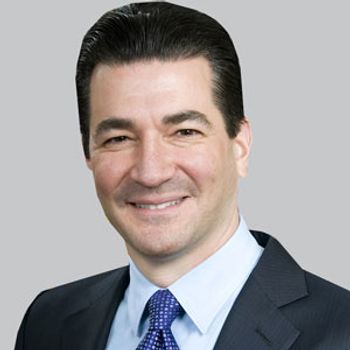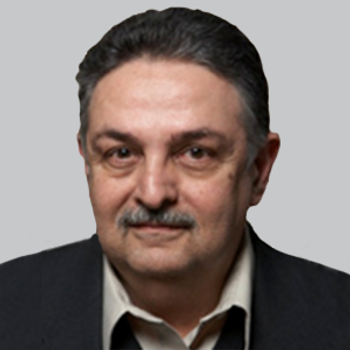
The treatment options for carotid webs with ischemic strokes have not been extensively investigated, and multicenter observational studies are warranted.

Matt Hoffman, Editorial Director for NeurologyLive, has covered medical news for MJH Life Sciences, NeurologyLive’s parent company, since 2017. He executive produces the NeurologyLive Mind Moments® podcast, and hosted the Medical World News show Deep Dive. Follow him on Twitter @byMattHoffman or email him at [email protected]

The treatment options for carotid webs with ischemic strokes have not been extensively investigated, and multicenter observational studies are warranted.

Therapies designed to treat neurologic conditions have made up 25% of the submissions to the FDA for a Regenerative Medicine Advanced Therapy designation.

The product was being marketed for conditions including Alzheimer disease, fibromyalgia, spinal cord injury, multiple sclerosis, muscular dystrophy, Parkinson disease, and peripheral neuropathy, among others.

The director and chair of the Feil Family Brain & Mind Research Institute at Weill Cornell Medicine provided insight into the different pathologies that lead to this dementia.

The neurocritical care fellow at Washington University School of Medicine in St. Louis shared his experiences modeling subcortical stroke.

The director of neuroimmunology at Johns Hopkins shared his thoughts on why neurofilament light is being developed as a biomarker for MS.

The director of neuroimmunology at Johns Hopkins shared his insight into the validation of neurofilament light as a biomarker for multiple sclerosis.

The professor emeritus of psychiatry at the University of Pennsylvania’s Perelman School of Medicine discussed the imperative need for physicians to recognize tardive dyskinesia.

The assistant professor of neurology at Weill Cornell Medicine shared the findings from a recent study that suggested a heightened risk of stroke may linger up to 3 months after myocardial infarction.

Could big data, combined with a biomarker, provide beneficial information for physicians treating multiple sclerosis?

The professor emeritus of psychiatry at the University of Pennsylvania’s Perelman School of Medicine spoke about the condition and the available therapies, as well as some of the needs that remain unmet.

The associate professor of neurology and neuroscience at Weill Cornell Medicine spoke about the history of cell therapies for Parkinson disease and how it’s informing current work.

Cognitive complaints remain a major issue for patients with epilepsy, leading the epileptologist at the University of Pennsylvania to share her insight into addressing them.

The president of the ANA offered his perspective on these novel genetic therapies, as well as other a few other areas of interest.

The professor of psychiatry and neuroscience at the Icahn School of Medicine at Mount Sinai spoke about new study findings that suggest antidiabetic therapy could reduce Alzheimer genetic expression.

This is the first oral film formulation of clobazam approved, highlighting the challenge of medication administration in patients with LGS, who often struggle due to physical, behavioral, or cognitive impacts.

Although treatment needs to be assessed in a larger trial, it also showed improvements in 2 measurements of functional ability.

The compromised microvascular and insulin receptor signaling pathways seen in Alzheimer disease have been shown to be reduced or normalized by exposure to antidiabetic therapies.

The medical director of clinical development at Biogen spoke about the current use of the biomarker and the steps being taken clinically validate it.

The director of the Comprehensive Multiple Sclerosis Center at Thomas Jefferson University provided insight on the potential effect cladribine could have on multiple sclerosis.

In its second phase 2 trial, the therapy, also known as AMO-02, resulted in improvements in cognitive function, fatigue, and neuromuscular symptoms.

The president of the American Headache Society shared her thoughts on how preventive medicines can alter migraine treatment for the better.

Despite the explosion of preventive medications for migraine, a large need for acute care remains.

With many advancements in treatments occurring in recent years, the president of the American Headache Society urged for further research to continue to light the way.

As well as showing a positive impact on patient daily living and cognitive decline, data also confirmed SIGMAR1 and COMT as biomarkers of response to the therapy.

The authors suggested that the detection and tracking of seizure cycles on a patient-specific basis should be standard in epilepsy management practices.

Allergan is planning a 2019 NDA submission to the FDA for its agent, ubrogepant, based on a pair of new trials.

Within the defined amyloid-tau-neurodegeneration framework of Alzheimer disease, the investigational agent has displayed a hopeful effect on all 3 pieces.

Since the inception of the idea more than 3 decades ago and its initial development 20 years later, Sarepta Therapeutics’ micro-dystrophin gene therapy has now made its way to human trials.

The medical director of the UCSF Multiple Sclerosis Center provided some insight into the development of therapies for the purpose of remyelination.